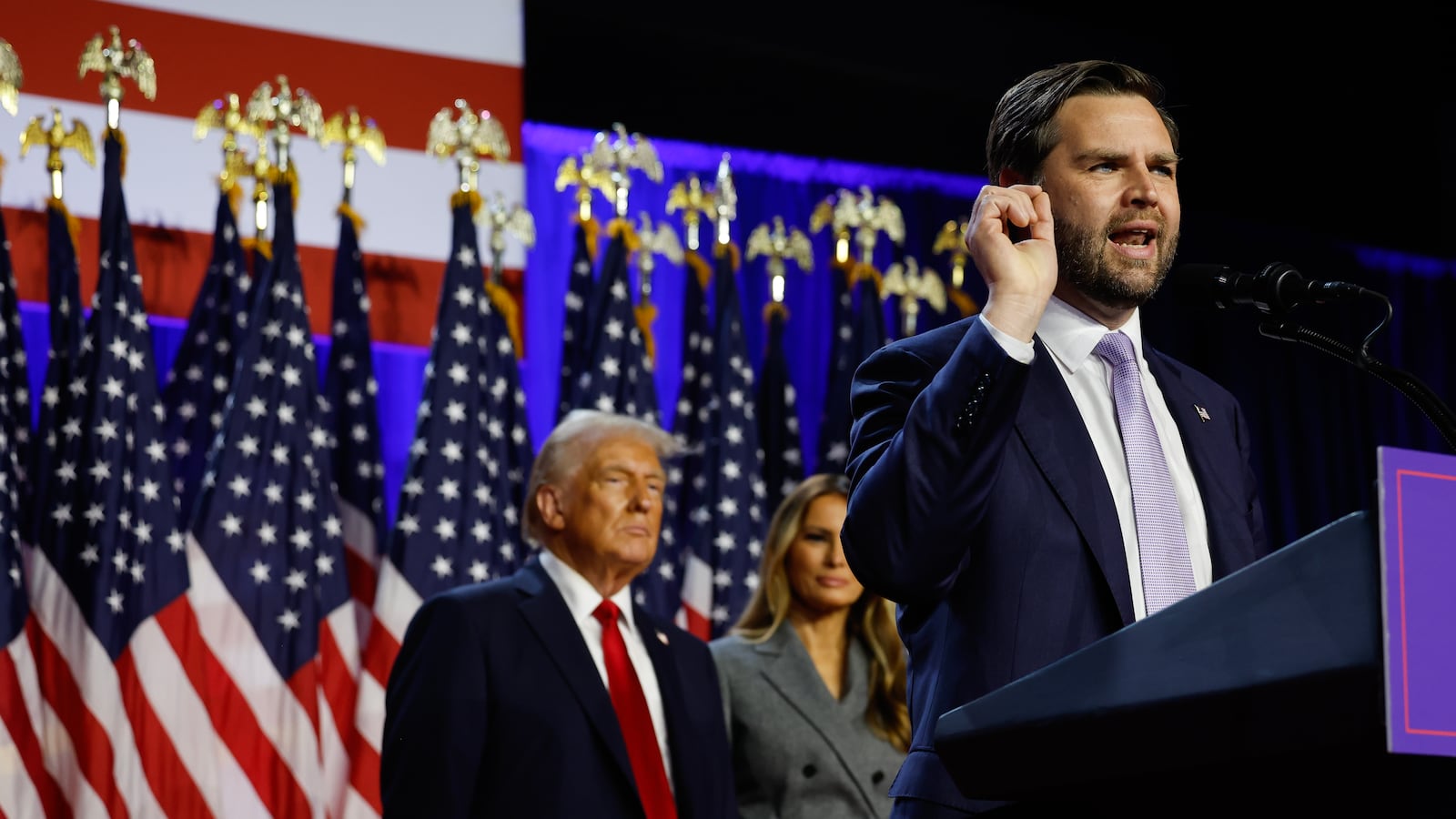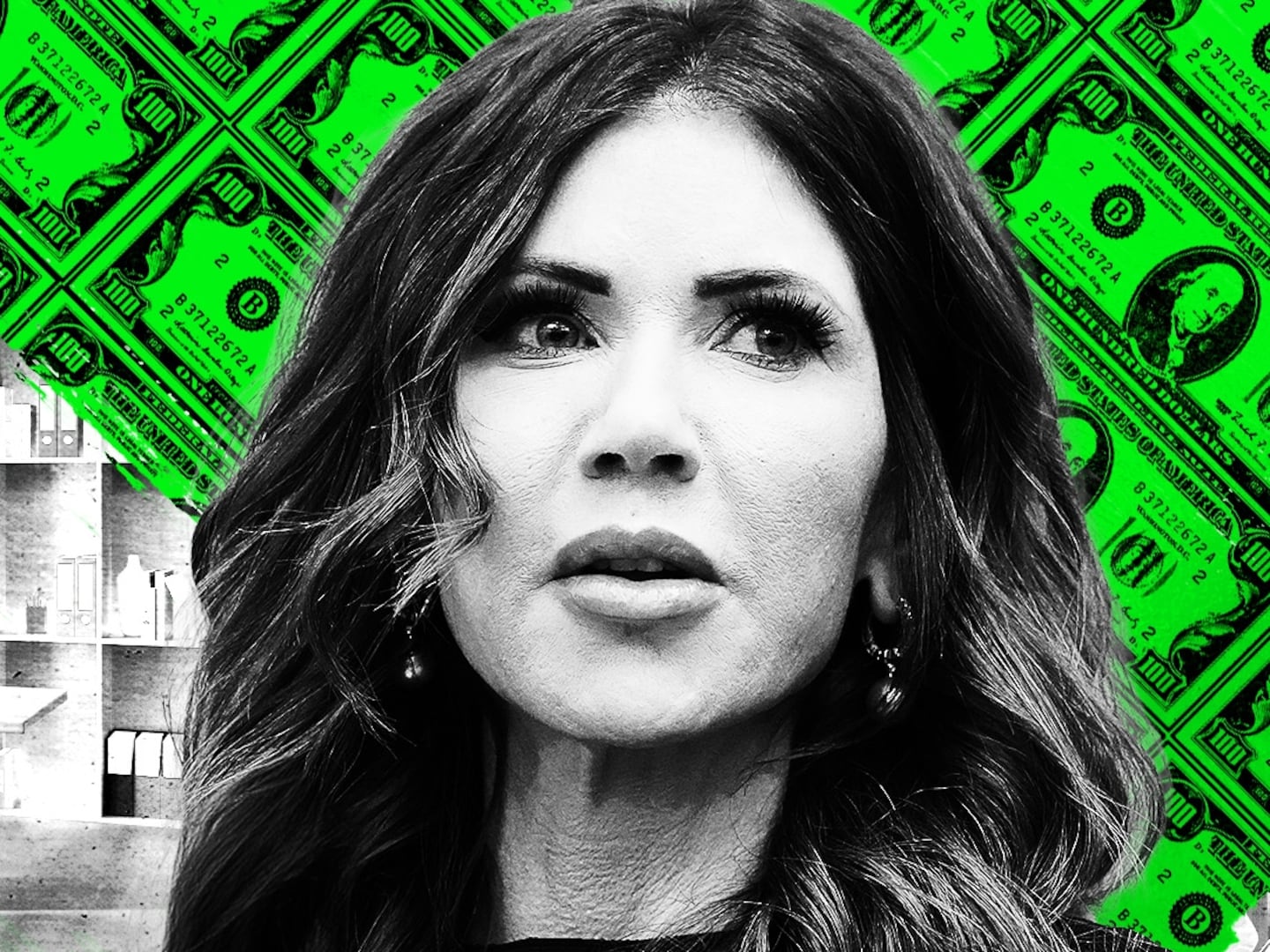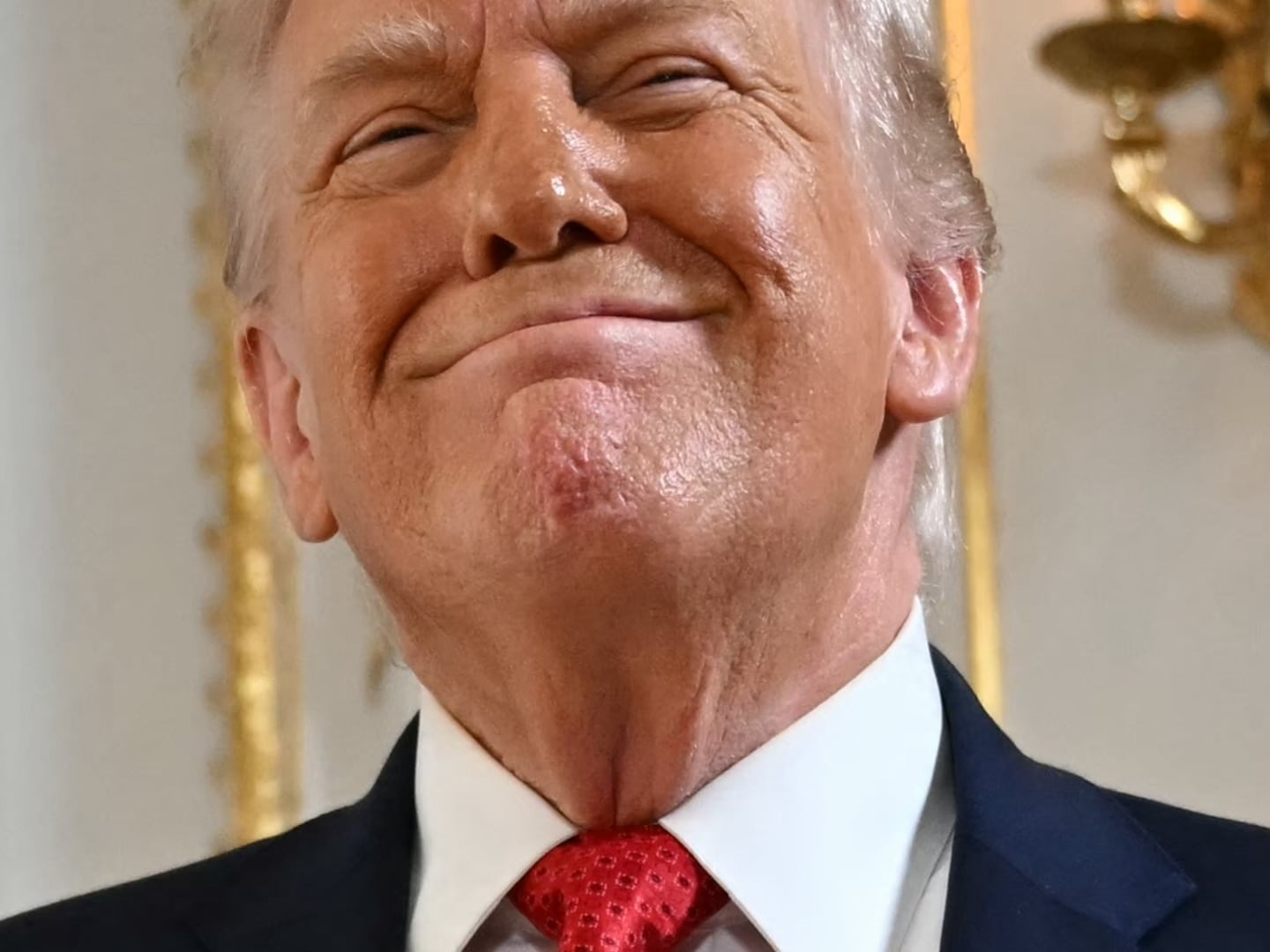JD Vance is now just a heartbeat from the presidency—and that’s the heart of the oldest man ever elected to the White House.
Just eight years ago, Vance was criticizing Donald Trump as a “fraud” and a “moral disaster” and reportedly told a friend he couldn’t decide whether the MAGA mogul was a “cynical a–hole like Nixon” or “America’s Hitler.”
Thanks to Trump, he now stands first in line to inherit the most powerful job on Earth.
At 40, he becomes the youngest vice president since, er, that cynical a--hole Nixon. After his flip-flopping on Trump, the question remains, who is he, and what would he do as president?
Vance’s early story is well-known. He left home in Ohio after high school to join the U.S. Marines for a four-year stint that included six months in Iraq, deployed in a non-combat role as a military journalist. Then, with help from the GI Bill, he graduated from Ohio State University before studying at Yale Law School, where he met both his Indian-American wife, Usha, and his future mentor in the world of venture capitalism, the right-wing billionaire Peter Thiel.
But it was not his military service, legal acumen or business success that brought Vance to national attention. It was his 2016 memoir Hillbilly Elegy, which he had first been encouraged to write several years earlier by his Yale professor, Amy Chua.
Subtitled “A Memoir of a Family and Culture in Crisis,” the book was embraced by conservatives for its unflinching depiction of social disintegration in the Appalachians, the sort of disaffected white working-class communities whose support helped tip the balance for Trump in the 2016 presidential election, a few months after its release.
The book’s success marked Vance out as a man with a particularly personal knowledge of the Republicans’ most prized constituency, although at the time, the tall, gawky intellectual seemed an unlikely conservative guru himself.
Vance continued to criticize Trump—“I’m a Never Trump guy,” he told Charlie Rose in 2016—and reportedly voted for the independent Evan McMullin.
After Trump settled into the White House, however, Vance put aside his natural contempt—deleting his disobliging tweets—to infiltrate the MAGA movement, winning Trump’s endorsement for a long-shot tilt at the U.S. Senate for Ohio in 2022 and becoming one of his leading surrogates in D.C. as his re-election campaign got into gear.
But even though Vance featured on the shortlist for Trump’s VP pick—his previous VP having run foul of the Jan. 6 mob—most expected Trump to choose a running mate with more experience of retail politics, the main candidates being Sen. Marco Rubio of Florida and North Dakota Gov. Doug Burgum. Vance had been talked up by some of the most powerful figures in the wider MAGA movement, including Thiel, Elon Musk, and former Fox News host Tucker Carlson, as well as Trump’s two elder sons, Don Jr. and Eric.
Trump’s decision to name Vance to his ticket on July 15, the first day of the Republican National Convention in Milwaukee, was seen as a victory for the MAGA hardliners, and a sign of Trump’s confidence in his election battle with the 81-year-old Joe Biden.
Two weeks later, Biden dropped out of the race, paving the way for his own vice president, Kamala Harris, and Trump’s choice of running mate appeared to have come back to bite him. Awkward on the campaign trail, Vance’s “weird” obsession with “childless cat ladies” was seized upon by the Harris campaign.
Given Trump’s age, and with clear signs of his cognitive decline, it’s fair to ask what sort of president Vance would be. On most policy issues he appears to be clearly to the right of his boss—firmly anti-abortion, anti-migrants, anti-trans, and of course, anti-childless cat ladies—although he has mostly managed to tailor his policy pronouncements.
The biggest clue as to what a President Vance might look like must be those who backed him as vice president: not just Thiel and Musk and the elder Trump sons, but the Heritage Foundation, the rightwing think tank behind Project 2025, a 900-page policy roadmap laying out the priorities of a second Trump administration, including radical cuts to federal government.
Trump himself was forced to disown and distance himself from Project 2025 and its more extreme policy proposals. Vance was closely tied to the policy push and even wrote the foreword to a book by Heritage Foundation founder Kevin Roberts. Roberts told Politico in March this year that Vance “is absolutely going to be one of the leaders—if not the leader—of our movement.”

But after once again defying the pollsters to win not just the electoral college but the popular vote, Trump paid tribute to Vance at his victory rally in Florida early Wednesday.
“I want to be the first to congratulate our great—now I can say—vice president-elect, JD Vance, and his absolutely remarkable and beautiful wife, Usha Vance,” Trump said, as the crowd chanted “JD! JD!”
“He’s a feisty guy, isn’t he? You know, I’ve said go into the enemy camp, and you know the enemy camp is certain networks. A lot of people don’t like that. Do I have to, sir? He just goes: OK, which one? CNN? MSNBC? He’ll say Thank you very much…. He really looks forward to it. And then he just goes and absolutely obliterates them.”
He went on: “He’s turned out to be a good choice. I took a little heat at the beginning, but he was–I knew the brain was a good one, as good as it gets, and we love the family, and we’re going to have a great four years, turn our country round, make it something very special.”
The Daily Beast Podcast episodes are released every Thursday. Like and download on Spotify, Apple Podcasts, YouTube, or your favorite podcast app. And click here for email updates as each new episode drops.






